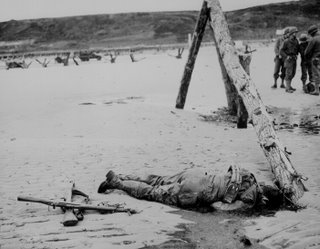Tonight is one of those times. I tell myself I am being silly, as I sit here typing away next to our Christmas tree. I remember every single ornament: who gave it to us, or where we bought it and where and why. There were presents under the tree, until Fiona started trying to unwrap them. (They now repose in an undisclosed location until Christmas morning.) Every day more Christmas cards from friends and family arrive in the mail, reminding me that George and I are part of a whole community of friends and family.
Yet all I can do is cry. Last Friday, as we all know, a very sick young man killed 20 children and 7 teachers at an elementary school in Newtown, CT. I've been immersed in discussions/disputes about gun laws, treatment of the seriously mentally ill, grief for the parents and families left behind, as well as for those little darlings who will never graduate, not even from grade school, never travel, go to college, get married.
And for some reason I am having an even harder time than usual dealing with the absence of my own parents this year. My dad was like such a little kid about Christmas; he and I always had so much fun together, decorating the the tree (always the day after Thanksgiving), going downtown to see all of the Christmas lights and the mechanized displays in the department store windows, especially Dayton's. Caroling with mom and other parishioners from Incarnation. And every year, until I was 24, sitting between mom and dad at Midnight Mass, hearing the ancient words "For behold I bring you tidings of great joy..." Going up to the Creche afterwards to see the Baby Jesus lying in the manger, and in later years the Choir always sang the Hallelujah Chorus from Messiah immediately after the conclusion of Mass. Holding hands with mom and dad as we prayed in the "words our Savior taught us, Our Father who art in heaven..." and most of all, singing the old, familiar carols, especially my favorite, Silent Night, Stille Nacht, written in Germany so long ago. Now there is new family, warm, loving, caring family. I have a husband, whom I love very much. But I haven't been able to go to Midnight Mass since I lost my mom.
This is, without a doubt, the hardest time of year to be childless. We keep running into one roadblock after another, until I have to shut myself alone in our bedroom so George doesn't have to listen to me crying in hysteric despair. Yes, I feel selfish bringing up our loneliness for a child when I know parents out in Newtown are grieving their lost babies. But grief is grief, and it deserves to be honored and spoken of, regardless of the circumstances, or who is doing the grieving, or why.
I'm particularly overwhelmed by my upcoming neck surgery. Less than two days to go now. And I feel so alone, I guess everyone does when they are facing surgery or something similar. Because no one can experience it with you. George is spending the day with me; Friday he's taking me over to my Aunt Jo and cousin Melinda's house, so they can fuss over me, and Sunday my birthmom is coming over to baby me. Plus, I am receiving the Catholic Sacrament of the Sick from one of my favorite priests tomorrow. So I have all of my ducks in a row, so to speak. but I still feel sick to my stomach every time I think about it. Part of my issue here is, yet again (this question has been popping up everywhere the last few days) is WHY. Damn it all, I am sick of being in pain every single blasted day of my life. Why do I have to endure more? Yes, I know other people have it worse. but I have have never understood why that is supposed to make me feel better. I'm supposed to be happy and grateful that at least I'm not suffering the way other people I love are? I don't think so.
I guess this is one of those times of, maybe not doubt, so much as feeling so desperately alone. This is why I ask for prayers, because right now I've lost the ability to form the words myself. I guess my tears and my writing tonight will have to be my prayers.
I guess a partial answer lies in something I told a friend the night of the tragedy at Sandy Hook, when we were struggling with the question of why, of how, an event so hideously, cosmically wrong could happen:
You just sound upset, that's all, hon. Don't apologize for that. As to why this happened...can there possibly be a satisfactory answer? We live in a violent society. We can work for peace and justice. But does that help right now, at this very moment? All we know for sure is that God weeps with us, and that in the end God will wipe away all of our tears, and we will all be together again. And I always remember that Jesus wept when Lazarus died. He understands our feelings of grief and loss, because He experienced it too.Amen.
















